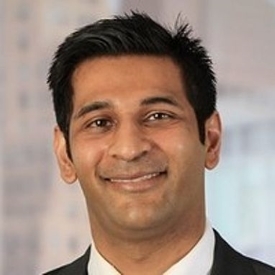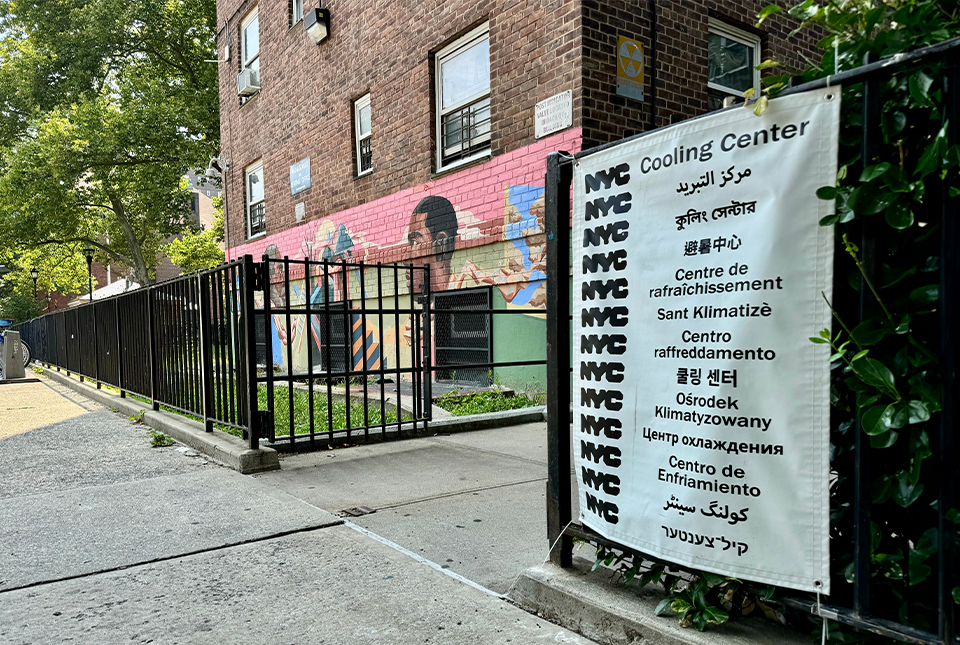Dr. Arnab Ghosh, assistant professor of medicine at Weill Cornell Medicine, has been selected as an Emerging Leader in Health and Medicine Scholar. The program, part of the National Academy of Medicine, provides opportunities for future health care leaders to collaborate with its members and the other selected Scholars, address persistent challenges and drive transformative change.
“Dr. Ghosh's multi-faceted expertise as a clinician, social scientist and policy-minded researcher sets him apart and powers his unique, creative and impactful contributions to the critical topic of climate and health,” said Dr. Deborah Estrin, associate dean for impact and Robert V. Tishman ‘37 professor of computer science at Cornell Tech and the Cornell Ann S. Bowers College of Computing and Information Science, who nominated him for the honor.

Dr. Arnab Ghosh
Dr. Ghosh follows an unconventional path for a physician. In addition to being a practicing internist at NewYork-Presbyterian/Weill Cornell Medical Center, he is a researcher funded by the National Institutes of Health and National Science Foundation in the Division of General Internal Medicine at Weill Cornell and a former NIH Climate and Health Scholar.
His research is shaped by caring for victims of extreme weather events, including the 2009 Australian wildfires, Hurricane Sandy in New York City in 2012 and Hurricane Maria in Puerto Rico in 2017. He witnessed the disproportionate effects of climate-related disasters on vulnerable populations such as low-income communities, minorities, women and older adults.
His firsthand experiences with patients whose lives were disrupted have led Dr. Ghosh to focus on developing interventions that protect against climate drivers like heatwaves, hurricanes, heavy rainfall and flooding. These factors can influence air quality, food systems and public health, contributing to poor outcomes such as heart disease, respiratory illness, heat sickness and mental health challenges.
“I am excited about this opportunity to learn from diverse researchers and find creative scientific approaches to improve lives,” Dr. Ghosh said. “With extreme weather events becoming more frequent, we need to keep climate impacts on health central to science and policy—and prioritize this at a national level.”
As an expert advisor with the U.S. Department of Health and Human Services’ Administration for Strategic Preparedness and Response, he contributed to the Climate Resilience for Health Care Toolkit that is now being distributed nationally for emergency preparedness and resilience planning within health care organizations. “I worry about the upcoming hurricane and heat wave seasons—are we prepared?” he said. “We must build health care systems that can manage this growing risk.”
Locally, he is an Emergency Management Fellow with Health + Hospitals New York City, the largest county health system in the U.S., and contributes to its climate and flood mitigation strategy. He also serves on the advisory board for New York City’s Master Urban Forestry Plan, led by the Mayor’s Office of Climate and Environmental Justice. The initiative aims to bolster climate resilience by strategically planting more trees to expand urban forests, which reduce flood, heat and air pollution risks.
Another effort is focusing on the higher risk extreme heat presents for older adults. Dr. Ghosh is spearheading the Initiative for Extreme Heat and Aging with Dr. Estrin and other colleagues to bring together multidisciplinary researchers across Cornell and Weill Cornell Medicine. “Our goal is to develop solutions that are scientifically rigorous, technologically innovative and grounded in environmental justice,” he said.
He emphasized that reducing climate-related health risks will require collaboration across sectors. “A pill isn’t going to fix this problem. It will take a broad approach to address all the different factors involved,” he said. “It's working with folks who have an interest in developing meaningful, sustainable solutions.”
As part of the three-year Emerging Leaders program, Dr. Ghosh will connect with mentors and participate in collaborative initiatives with peers and experts across disciplines including pediatrics, psychiatry, infectious diseases and biomedical engineering.

